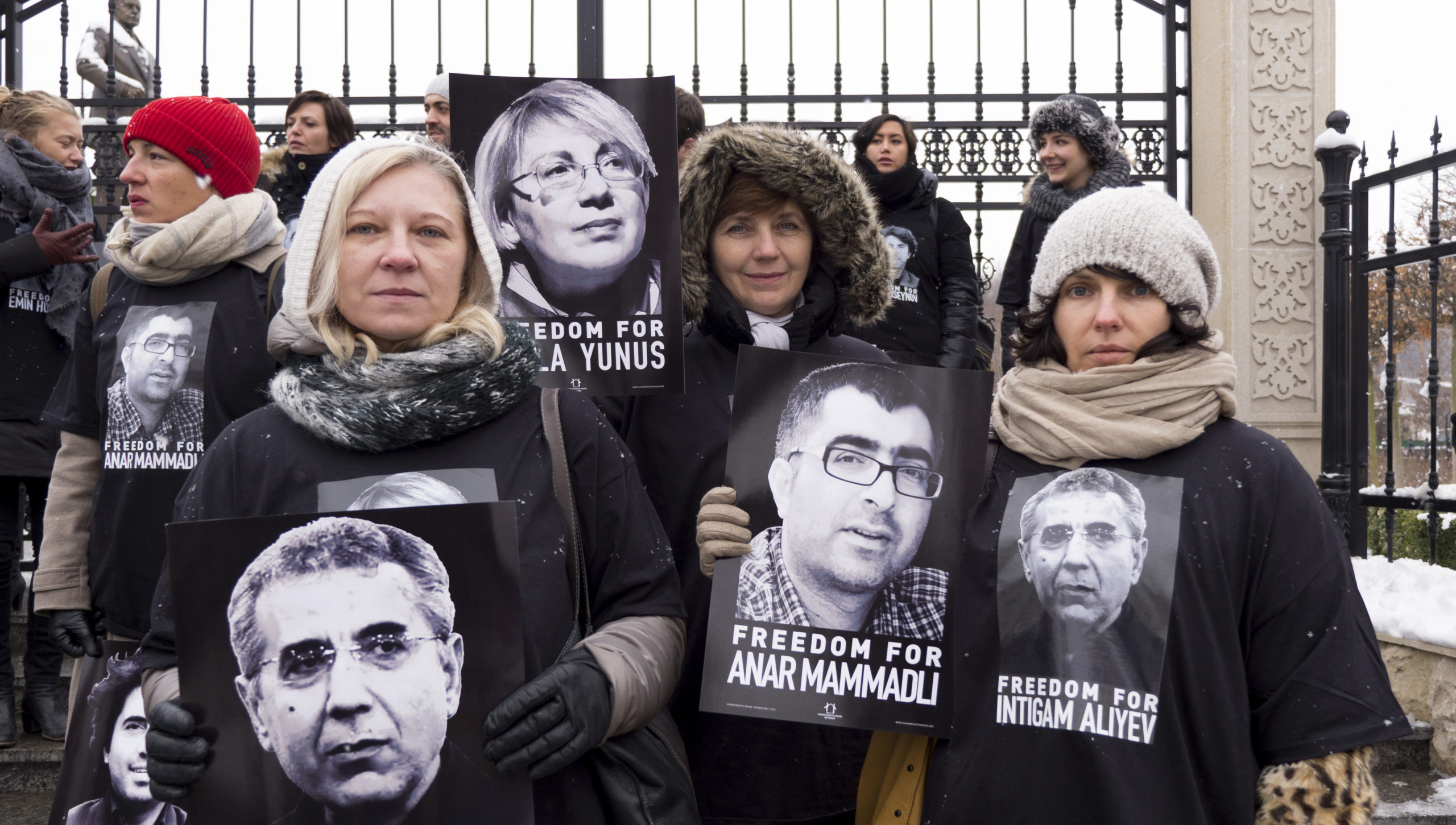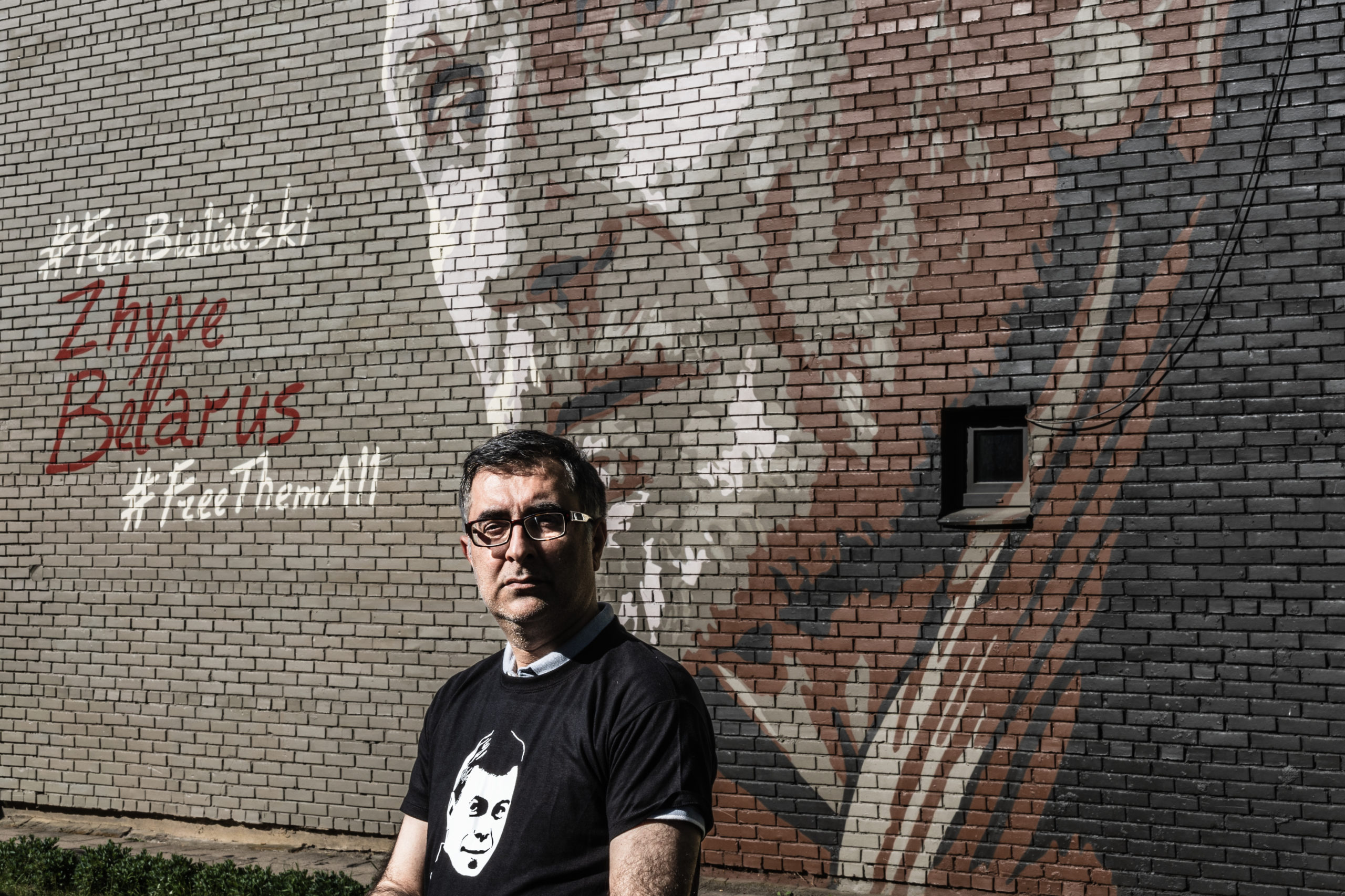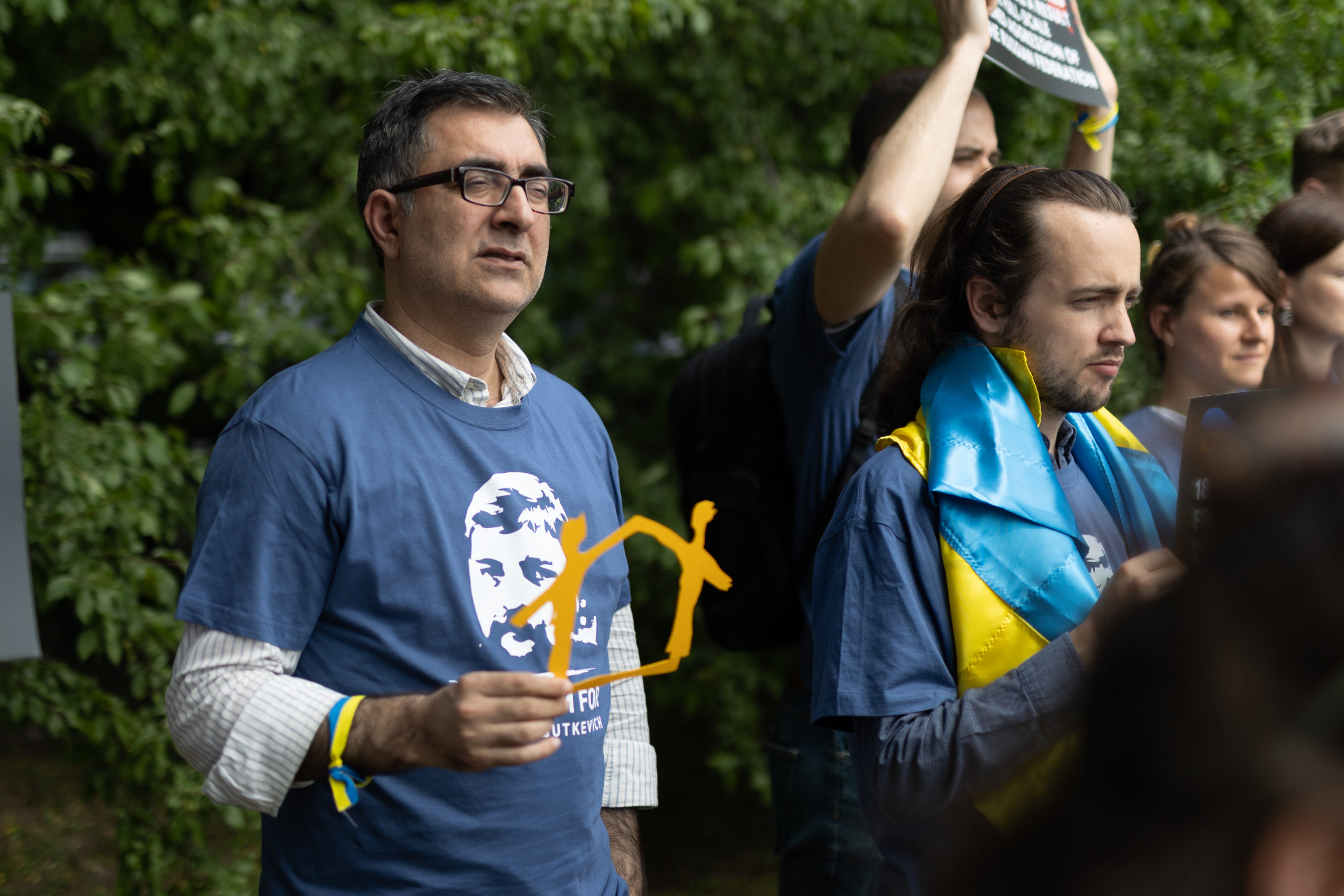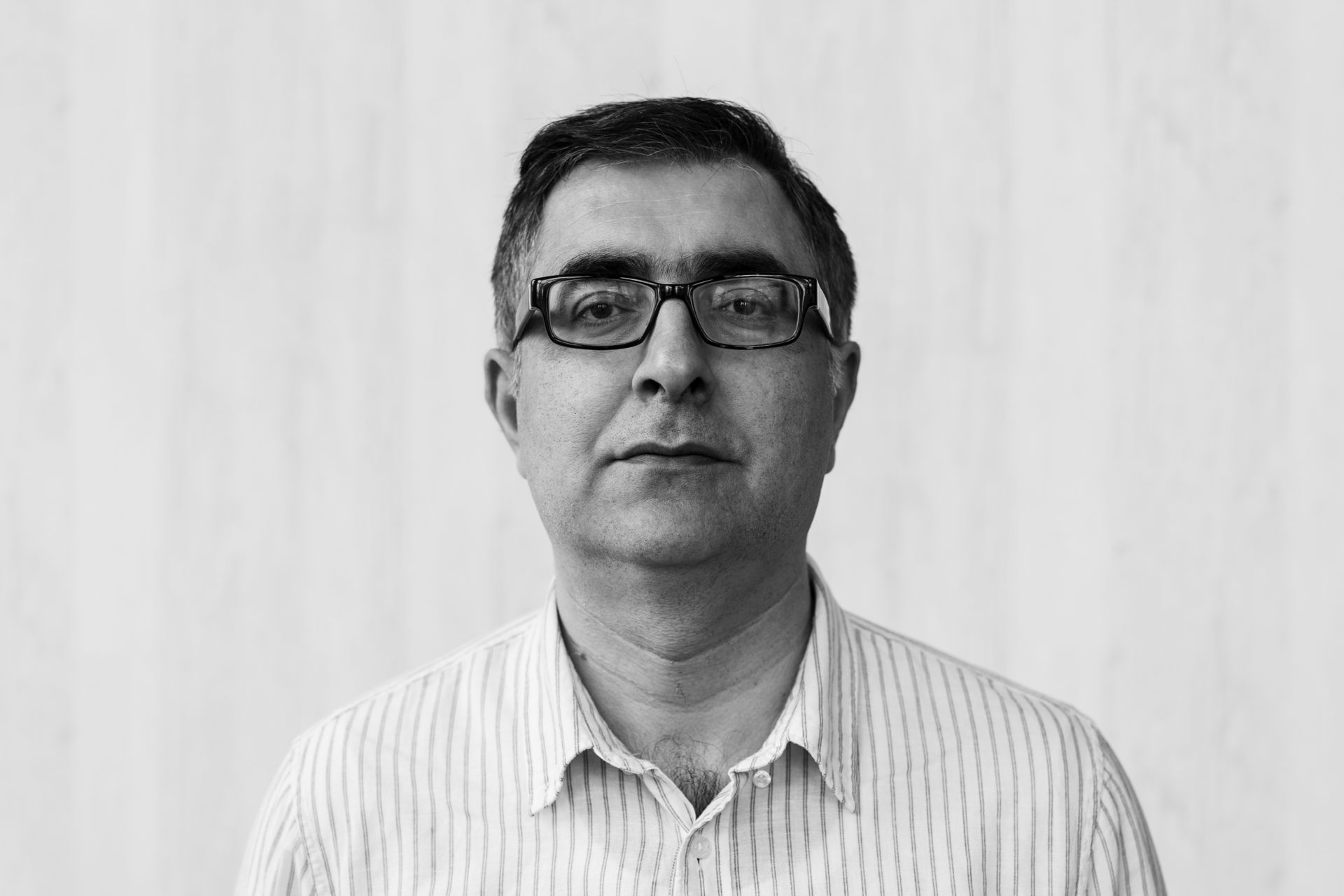Human Rights House Foundation (HRHF): When did you decide to become a human rights defender?
Anar Mammadli (AM): It was when I was a student in the early 2000s. At that time, there were a lot of political prisoners in Azerbaijan, over 700, many of them were young civil and political activists. At the same time, Azerbaijan was in the process of negotiation with the Council of Europe (CoE) regarding the country’s membership which it attained in January 2001.
One of the conditions for Azerbaijan’s membership to CoE was the improvement of legislation such as the election code, media law… freedom of expression, and the release of political prisoners. CoE appointed rapporteurs to conduct fact-checking missions on the situation of political prisoners. I found the process fascinating.
There was a discussion among my friends and colleagues about starting an organisation. This is the point where I would say I became involved in human rights.
One of the first things I remember that we did was a campaign for the release of a journalist, Fuad Gahramanli, who prepared an article on tactics for arranging a political rally. He hadn’t even published the article – it was just sitting there as a draft on his computer. The police raided the office of “Chag”, the newspaper he worked at, and he was charged because of this unpublished article.
The arrest [of journalist Fuad Gahramanli] shocked many people. How can you be charged for “destroying public order” for an unpublished article?
Fuad Gahramanli got three years and six months in prison. We started to campaign for his release. There were many other cases like his in Azerbaijan, and that is why I started my work, and why I became interested in political freedoms in our country. In 2003 I actively joined the electoral process.
HRHF: What work were you doing prior to your arrest? What were you accused of doing?
AM: My arrest took place immediately after the October 2013 presidential elections. My organisation, EMDS, monitored the process and released reports critical of the elections. We were also critical of the election results.
At the end of the month, the authorities opened a case against EMDS. They claimed tax evasion and illegal business activity.
Specifically, they accused us of not registering our grants with the Ministry of Justice. But independent NGOs can’t get access to the Ministry of Justice in Azerbaijan.
One month later, they decided to arrest me and I was detained on 16 December 2013.
I was sentenced to five years and six months, and one of my colleagues received the same sentence. Another colleague was jailed for two years and six months, and one was given conditional release where he was unable to leave the country and had to report his movements and such.

HRHF: Did you ever consider that you could actually end up in prison for your human rights activities at the time?
AM: Yes. I first realised the threat was serious during the 2008 presidential election. The authorities revoked the registration of EMDS, though we continued our work, and I got repeated warnings from the government.
Privately, foreign diplomats were warning me that though they could continue financial support, they weren’t able to protect me.
At that time, Wikileaks leaked some conversations between [Ilham] Aliyev and US diplomats during which Aliyev complained about me. He said that I and a group of independent NGOs working in Azerbaijan were planning some kind of revolution in the country.
Aliyev also said that I would attack him publicly. I don’t understand what it means though, I’m only monitoring elections.
HRHF: Why did you continue your human rights work despite the risks?
AM: First of all, you understand that you are not doing anything wrong. If you are confident that your work is not bad, not criminal… what you are doing is in the interest of your own nation, your own people – maybe it is some form of patriotism. I have worked in several different countries as an election monitoring expert – but I have always returned to Azerbaijan.
Different people in different ways love their country and try to serve their country. For some it’s literature, culture, and things like this – but for me, it’s through the promotion of free and fair elections. To see my country free. This is how I serve Azerbaijan.
HRHF: How does it feel to be a political prisoner – behind bars unjustly? What kind of toll does it take?
AM: Usually, in prison, regular prisoners – so, not political prisoners – spend their time thinking about their crimes. Some of them even confess privately that they actually did something bad – they feel that it was a huge mistake in their life. For example theft, murder… things like that.
But a political prisoner cannot feel such a thing. Your feeling is that you are here unfairly because of my criticism, because of your passion. You understand that you are not guilty, you must just be silent and comfortable – no need to justify yourself – what you did “wrong” is only according to the government.
It is, however, difficult to be isolated like this from your family, from your colleagues, and friends. Isolated from life.
When I went to jail I remember the moment I switched off my phone and gave it to the investigator. That is when I lost my connections to life… then you are only left with the prison phone call.
You have to be well-prepared for this repression, and some people are not and can break easily. For me, some days were very testing. But then I realised that I have many supporting me – there was a lot of interest in my story -interest in my ideas, and people respected me.
Two elections took place in Azerbaijan while I was in prison. A few days after one of them I received a newspaper – it is actually very difficult to get independent newspapers in jail.
There was an opinion written in the newspaper – ‘if Anar Mammadli is in jail… the election is not free and fair.’ Reading these words gave me so much, they uplifted me.
You have a lot of time on your hands. There are two things you can do with this time. You can kill time or you can work on yourself. Killing time is about chatting, and doing nothing important.
Working on yourself, for example, you can read a lot of books. I tried to improve my English so I read more than 120 books in English. I also watched films, but it was difficult – you have to wait in line, there is only one or two rooms to watch films.
In prison, you suffer a lot. Your nutrition is not the same, medical issues can be a problem – you cannot just go to a checkup. And also emotionally, you cannot see your friends – it’s difficult to call them.
And then there is the news of deaths… when I got the news of the deaths of people close to me. It was so painful… Disasters.
Elton Gulieyv, a prominent human rights lawyer in Azerbaijan, Nargis Yagublu – a young activist and daughter of political prisoner Tofig Yagublu.
These deaths are so close to me because these people are fighters. It’s a powerful reason to keep fighting injustices.
Boris Nemtsov. He was murdered when I was in jail. I received the news three days after he was killed. I was very sad. I felt like I had lost my brother. Boris Nemtsov was an idol for many people, many young people. He was a good fighter for democracy. That I got this news late was bad news. It was bad news again that I could not attend his funeral. If I was free I would have immediately gone to his funeral.
After my release, I tried to go to Moscow to visit his grave, but I had a problem in the transit zone of the Moscow airport and got a lot questions due to my trips to Europe. I just realised that it would be difficult to travel to Moscow. I will visit his grave in the future.
HRHF: Why have you decided to stay in Azerbaijan following your release?
For me, it’s very difficult to leave Azerbaijan. I feel like I don’t belong to any other country. I belong to Azerbaijan.
AM: After my release, I stayed for more than two years abroad to study and other programmes. Every day I was constantly checking my social media accounts for news about Azerbaijan. You are physically living in one country… like Norway, Germany, or the United States… but you are existing in the time zone of your own country.
To live between two time zones is difficult and in the end, I chose my own time zone.
I very much like this quote from Thomas Mann “Democracy is an endless battle, and it must be started every day anew.”
HRHF: What is the situation for human rights defenders in Azerbaijan today?
AM: The situation in Azerbaijan has become much worse compared to ten years ago. The atmosphere of fear has increased. [The authorities] were able to cement this atmosphere of fear in the country. Now people are much more afraid.
In this way, it is my fear that the authorities have achieved their goals.
HRHF: Do you face threats today as you continue your work as a human rights defender?
AM: There is a regular and ongoing threat for activists from my country – as well as other countries with authoritarian regimes
If you live in an authoritarian regime, it means that any type of activity could be deemed dangerous by the regime and at any time you could be persecuted. You don’t have any guarantee. Threat is your daily life.
Also, we should understand that the legal and political environment does not allow you to freely operate in your country – it means that there is a threat for you.
HRHF: Though you are free, many of your colleagues in Belarus are behind bars for their human rights work. What message do you have for them? What can people do to support political prisoners?

AM: If I could speak to them now I would say to them “I am very sorry you are in jail. You do not deserve such a life. The unfairness that you face is a dark page in your country’s history.”
Being behind bars means you lose all your privileges as an ordinary person. They don’t have good access to nutrition, free movement even. In this condition, it’s very important to keep moral support to them.
We have to help [political prisoners] understand that what they face right now is temporary. That there are thousands of people thinking about them, about their situation. They need to know they are very important.
Support gives you a passion to continue your life even under these conditions. Life is beautiful, but you have to be able to feel this in the worst parts of life too. Even if you have no hope that you will be released, you still need to feel life is beautiful. That is why it is so important that we must not let them think they are forgotten.
Solidarity is very important because we have universal common principles despite the fact we are living in different countries. Humans deserve better. Our colleagues fighting for a better life in Belarus are indirectly fighting for a better life in Azerbaijan, United States, Norway, everywhere.
When authoritarian regimes stand together – why should human rights defenders not stand together against them?
HRHF: Authoritarian states often seek to defame human rights defenders and portray them as unpatriotic, enemies of society, “foreign agents”, and so on. What is your view on this narrative?
AM: This narrative is an absolutely evil campaign. It’s just trying to blackmail human rights defenders because the authorities are violators of their own constitutions. If you violate the rule of law, the right to participate… if you falsify election results… you cannot talk about patriotism.
Patriotism means you respect the rights and freedoms of your own nation. If you do not give your nation its dignity, you are the enemy of the nation. Those that struggle for freedom are the heroes.
HRHF: What is the value of international solidarity from network partners?

AM: It’s important to have such a network in Europe because we need to help each other, to learn from each other, to change many things in our countries and in this process, we can refer to different experiences with colleagues in different countries.
Change is not limited to one country – human rights are universal. That is why our Network of Human Rights Houses is so important.
The Network is vital in such a difficult period on our continent.
Anar Mammadli
Anar Mammadli is a prominent Azerbaijani human rights defender, former political prisoner, and the founder of the Election Monitoring and Democracy Studies Center (EMDS).
Mammadli has worked for decades in monitoring elections and advocating for transparency. In 2008, he established EMDS (a member organisation of Human Rights House Azerbaijan) five months before the presidential elections of that year.
On 16 December 2013, Azerbaijani authorities detained Mammadli following his vocal criticism of the 9 October presidential election in the country. On 26 May 2014, he was sentenced to 5 years and 6 months. On 29 September 2014, while still in detention, Mammadli was awarded the Václav Havel Human Rights Prize, honouring his work as a human rights defender.
On 17 March 2016, after almost 2 years and 3 months in prison, Anar Mammadli was released from prison following a presidential pardon along with a number of high-profile political prisoners.
On 19 April 2018, the ECtHR issued its judgement. The Court found that Mammadli’s detention was illegal and that it was aimed at silencing and punishing him “as a civil society activist for his activities in the area of electoral monitoring”. As of June 2023, the judgement has not been fully implemented. He received monetary compensation for the violation of his rights, but his conviction has not yet been quashed and his criminal record is yet to be erased. As recently as June 2023 the Committee of Ministers of the Council of Europe called on Azerbaijan to urgently take the stated measures to fully restore his rights.





